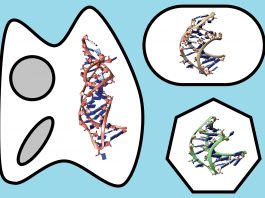Professor Ursula Schwab, Chair of the Research Council for Biosciences, Health and the Environment at the Academy of Finland, speaks to The Innovation Platform about the future of Finnish bioscience and the decision to fund 24 new Academy Research Fellow (ARF) posts.
The Academy of Finland’s Research Council for Biosciences, Health and the Environment recently announced its decision to fund 24 new Academy Research Fellow posts in order to increase the success of the Finnish bioscience industry. This year, in addition to the high scientific quality of the application and the applicant’s competence, the Research Council put particular emphasis on career advancement and the potential for scientific renewal.
The Academy of Finland’s Research Council for Biosciences, Health and the Environment recently announced its decision to fund 24 new Academy Research Fellows (ARF). The aim of the funding for posts as Academy Research Fellow is to support researchers in gaining competence for demanding research positions and establishing their status as independent researchers in the international research community, furthering the Finnish bioscience industry. ARF is a researcher with 3–9 years of experience since completing their doctoral degree, and they have already successfully engaged in scientific research and publishing after earning the doctorate. The new Academy Research Fellows will receive funding for five years. The Research Council’s total funding for the new posts comes to €10.5m. The success rate was approximately 14%. Around 46% of the funded Academy Research Fellows identify as women, compared to 58% of the applicants.
The Innovation Platform spoke to Professor Ursula Schwab, Chair of the Research Council for Biosciences, Health and the Environment at the Academy of Finland about the how the candidates were chosen and what she hopes they will achieve.
Why was the decision made to award 24 new posts as Academy Research Fellow, and how does that tie into wider Academy priorities?
Academy Research Fellow (ARF) is one of the three main research funding instruments of Academy. This is an important instrument, especially for individual researchers, as it can enable independent and international researchers to gain competence for the most demanding research posts after their postdoc period.
The Research Council for Biosciences Health and the Environment has committed to the funding of around 24-25 ARFs annually. The number of funded ARFs is determined by the annual division of the budget of the Research Council.
How competitive is the process? How difficult has it been to select the awardees?
ARF is a very competed funding form, as it gives the researcher an opportunity of five years funding with personal salary and research costs to execute an individual research plan. The process is very competitive, as only around 12-15% of our applicants in this instrument will be funded.
The selection of those to receive funding occurs through a carefully designed peer-review process that begins when an ARF applicant submits an application in our annual September call. The application is then evaluated by an international review panel of top scientists.
On the basis of a combined panel discussion of the applications, the panel then recommends a few candidates for funding. In the final funding decision, which is made by the Research Council, both the high scientific level of the research plan and the quality of the candidate – high level candidates will have been engaged in successful scientific publication and collaboration since gaining their doctoral degree – are equally important. The best awardees are usually recognised clearly by both the review panel and the Research Council.
What will the posts involve for the successful candidates? How long will it be before they are able to apply for funding to cover their research budgets? Will the funding come from the Academy, or elsewhere?
The ARFs implement independent scientific work in accordance with a set of their research plan. During the post, they have a chance to establish their independent position, not only in their research site, but also in the international scientific community around them. ARF duties also include supervision of thesis and dissertation writers in the field and teaching related to the research.
The research budget plan for this five-year period will be initially presented in the application. After the Research Council has decided which ARFs will be funded, they will be contacted and asked for a separate, more detailed application for their research costs. As soon as the ARF post starts, they also can start using their research costs.
Funded ARFs have typically other funding sources, too. These can include different types of support funding from universities and scientific foundations along with grants provided by European Union, like for example European Research Council and Marie Skłodowska-Curie grants.
Can you tell me a little about the subject areas that the new Research Fellows will be working in?
As the research fields in the Research Council’s domain into biosciences, health, and the environment are wide, the subject areas of the new ARFs also vary quite broadly. The largest typical subject areas include topics from ecology and evolutionary biology, cell and molecular biology, and biomedicine.
Among the funded research this year were, for example, a project concentrating on biochemical carbon and nitrogen cycling, a project focusing into the evolution of co-operation and conflict, and a project aiming to develop more effective immunotherapy for the treatment of melanoma.
It was great to see that some 46% of successful applicants were female researchers. Does the Academy employ quotas? How do you ensure that ‘the gender question’ is addressed in the Academy’s work?
This was a very good result, indeed. The most important review criterion for us is the high quality of science. But, of course, we carefully follow the share of women and men funded by us, as gender equality is one of the core values guiding the Academy in all our activities. We support openness, transparency, reliability, equality, and non-discrimination not only in our own work but also in all research we fund and support.
Looking to the future, what do you hope the new Research Fellows will achieve? How will the Academy continue to support them? And what benefits do you feel their activities will have for Finnish society?
We really hope to see bright, new, long-lasting shining stars in the sky of fundamental basic research. For ARFs we have continuous support chances in the funding forms like Academy Projects and Academy Professors, which are aimed for established researchers. We believe that the high-level researchers who have recently received funding will contribute significantly to creating solutions for the local and also the global challenges that society faces.
Professor Ursula Schwab
Chair
Research Council for Biosciences, Health and the Environment
Academy of Finland
Vice Head
Institute of Public Health and Clinical Nutrition
School of Medicine
University of Eastern Finland
+358 29 445 4528
ursula.schwab@uef.fi
Tweet @SuomenAkatemia
www.aka.fi/en
Please note, this article will also appear in the second edition of our new quarterly publication.









